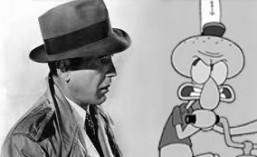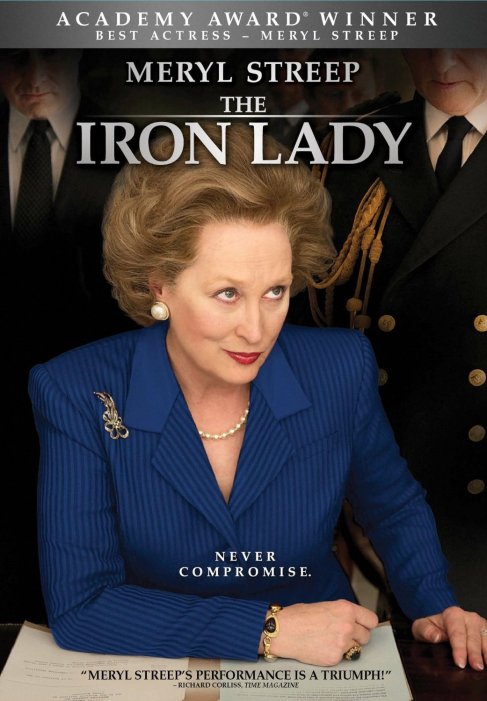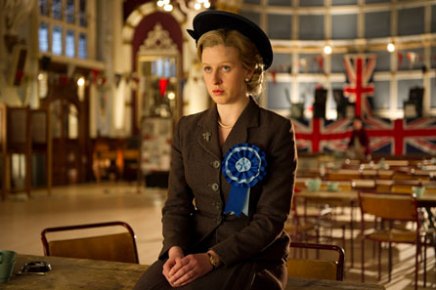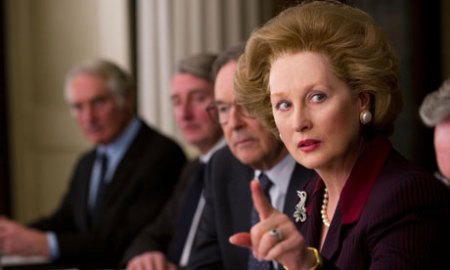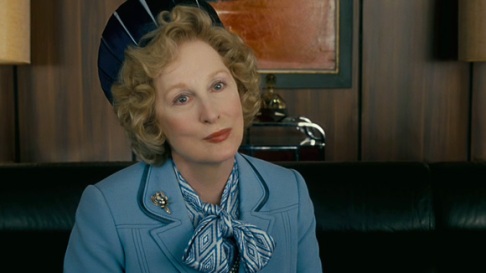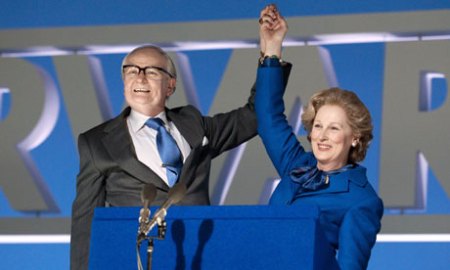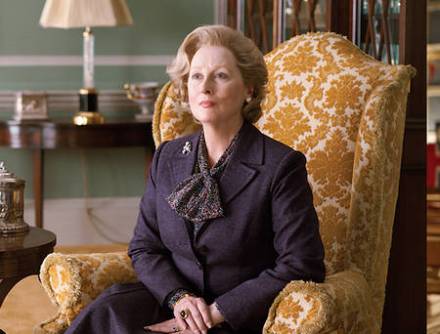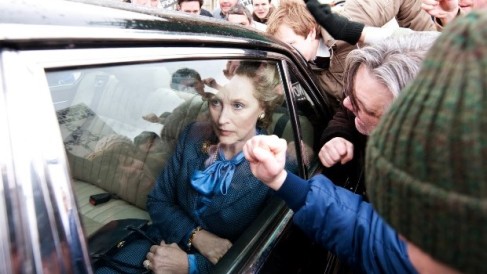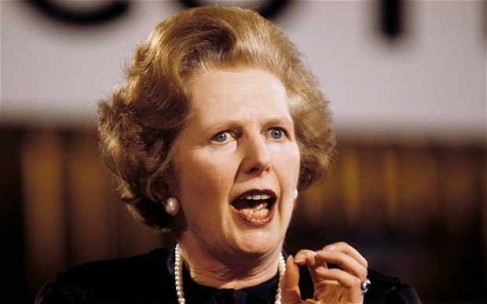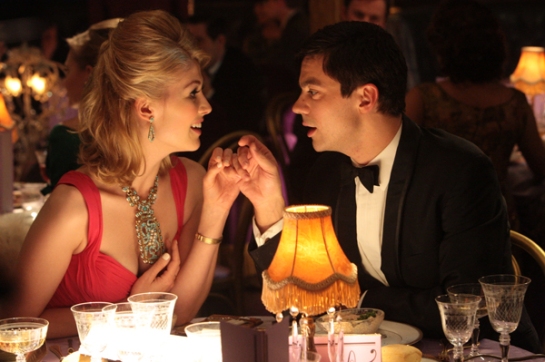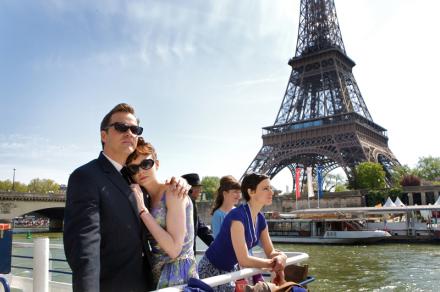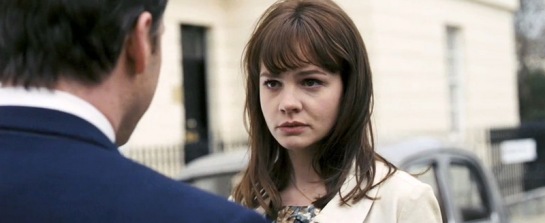Watching this movie was an interesting experience for me. When I watch a movie for the first time, I usually prefer to do it alone, because some people like to talk during movies (like pretty much my entire family). And then I ask them to stop and then of course they just do it more because it annoys me. I swear, I could be watching the most intense, important scene of a movie, and suddenly my Dad would say “Who is that actress?…Is she still alive?…Why is Bruce Willis holding a Samurai sword?…I think John Travolta secretly wants to be a woman…” I love my father, but seriously, I don’t watch movies to have conversation. But of course a couple of days ago I have to be nice, and when we didn’t have anything to do I just had to mention that I had a copy of The Iron Lady. And of course, the movie had been playing not ten minutes before “Is that Glen Close?” Happy Father’s Day Dad :).
Yet despite the unwanted disruptions, I really enjoyed this movie. The Iron Lady is a British film released in 2011 and directed by Phyllida Lloyd about the life of Prime Minister Margaret Thatcher. The movie begins with Margaret Thatcher (Meryl Streep) as an old woman suffering from dementia. As you continually watch her struggling with old age and dealing with her hallucinations of her dead husband Denis (Jim Broadbent),Thatcher has flashbacks to when she was a young woman (Alexandra Roach) trying to become a politician in a world of men, and eventually the wife and mother who becomes the first female Prime Minister in a western country.
There are so many great things about this movie. Although I might be biased as someone who majored in English and history, making me always up for a historical film. I’d say one of the best things about this movie is the artful way in which it was put together. This includes the inspired choice to not have a consecutive storyline but use flashbacks. This choice really gave more power to the tragedy of Thatcher’s aging as she reviewd her life.
The Iron Lady also has one of the best casts I have ever seen. Meryl Streep was amazing no doubt. Some critics were quoted saying something along the lines of she had more iron than the real Margaret Thatcher did. She was completely transformed. But I also loved seeing Anthony Head, the actor who played Giles in Buffy the Vampire Slayer and is currently playing King Uther in the show Merlin, pop up in a huge movie like this. And Jim Broadbent who played Margaret Thatcher’s husband Denis, did an astounding job, especially the scenes in which he was Margaret’s hallucinations.
However, best of all, this movie had probably one of the most subtle yet poignant endings in film history. It ends with the elderly Margaret Thatcher washing a tea cup. Which of course sounds ridiculous by itself, but becomes increasingly powerful when I tell you that early in the movie, when Denis proposes to her, she tells him “I will not die washing a tea cup.” But what’s so beautiful about the ending is that Thatcher cleans the cup, puts it on a shelf, and goes on about her day. She didn’t die washing it, she continues to live. Despite her dwindling mind, she will continue to remain a strong female figure in history for all time. Sorry, did the English major in me just wax too strong?
I think I only have one complaint about this movie. I felt it got a little repetitive, which I know is inevitable when it is constantly going back in time. However, I got tired of all the images of angry Englishmen tapping on her car window. After seeing it five times, I wonder, was the writer of this film not able to come up with another way to display the country’s outrage?
I would describe this movie as beautifully tragic. It is tragic in the way that Thathcer is fighting so hard to retain her sanity, in the way that she desperately misses her husband, and in the way that as Prime Minister, she finally understands that even she can go too far. I give the Iron Lady a 9. And after seeing it I should probably add Meryl Streep to my list about my favorite actresses: https://hereslookinatyousquid.wordpress.com/2012/06/06/my-favorite-top-ten-actresses-13-2/.
